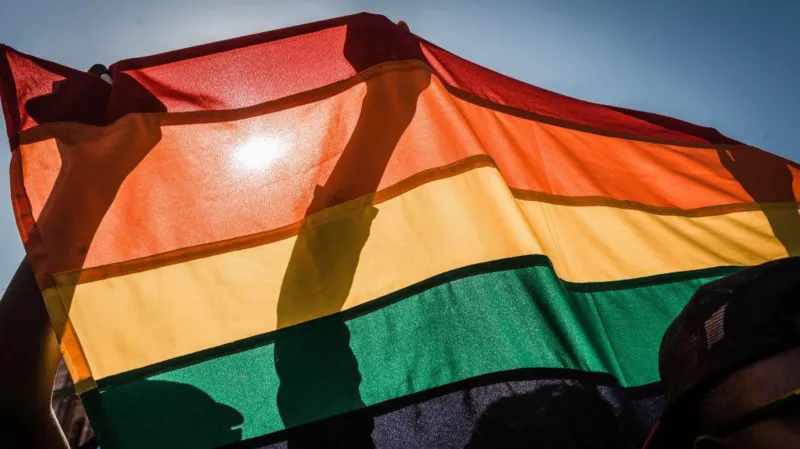In a landmark ruling for gay rights campaigners, laws banning same-sex acts between men have been ruled unconstitutional in Namibia.
Convictions for the colonial-era offences of “sodomy” and “unnatural sexual offences” were rare but fuelled discrimination against gay men who lived in fear of arrest.
No laws exist prohibiting sex between women in Namibia.
Marrying someone of the same sex is still illegal in the southern African nation.
But if a same-sex couple weds abroad and then returns to the country, their union is legally recognised.
After Friday’s judgement was read out at a high court in the capital, Windhoek, campaigners for the LGBTQ group Equal Namibia shared photos of people hugging in court.
“Welcome to a new Namibia. A born-free Namibia,” the group said on social media.
The term “born-free” was most famously used in neighbouring South Africa to describe the first generation of children growing up in the dawn of democracy after white-minority rule ended in 1994.
The court case was brought by a Namibian activist called Friedel Dausab, with backing from the British charity Human Dignity Trust.
“It won’t be a crime to love anymore,” Mr Dausab said reacting to the verdict.
Summing up his emotions, he told the Reuters news agency he was “just happy”.
The UN has also applauded the ruling, calling it a “powerful step” towards a more inclusive nation that would also improve access to health services and HIV treatment.
Fearing a backlash to the ruling, the rights group Amnesty International is urging the Namibian government to ensure the safety and dignity of LGBTQ people.
It said it had already documented instances of “alarming” and “threatening” speech in the country during the run-up to the court case.
Namibia, first colonised by Germany, gained independence from South Africa in 1990 after a protracted bush war.
STORY BY BBC


